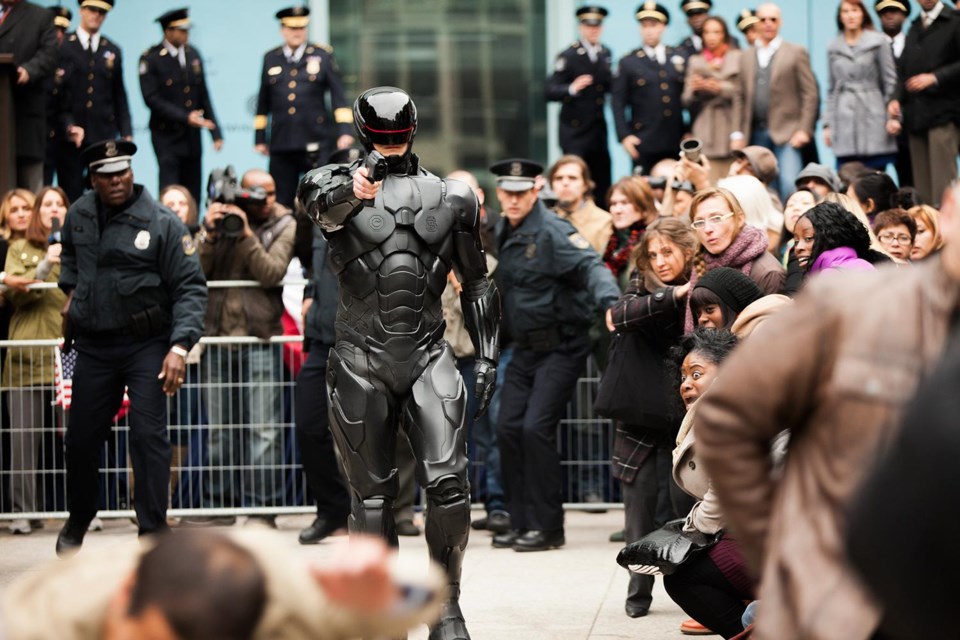Robocop
Now playing at Scotiabank Theatre
Itās a banner week if you grew up watching ā80s movies, with remakes of both Robocop and About Last Night hitting the big screen.
About Last Night takes place in a present where Kevin Hart takes over from Jim Belushi; Robocop takes place in the near future, where Detroit looks an awful lot like Vancouver.
In 2028, mechanized limbs have been fine-tuned to the point where an amputee can play classical guitar again. But the arts donāt pay the bills ā as every classical guitarist and writer knows ā so the company plans to turn a profit with a shiny, new law-and-order āproduct.ā Robots are already being used overseas in military deployments (āOperation Freedom Tehranā starts the film off) but the plan is to have robots serve and protect, stateside.
Thatās where policeman Alex Murphy comes in (Joel Kinnaman of TVās The Killing). Murphy is in the middle of a weapons investigation when a car bomb detonates, burning 80 per cent of his body and leaving him near death. An Omnicorp doctor (Gary Oldman) offers Murphyās distraught wife (Abbie Cornish) a radical way to save him. But āwhat kind of life will he have?ā she worries.
At first Alex is too human, too slow, according to Omnicorp president Raymond Sellars (Michael Keaton, a convincing baddie). Dr. Norton is ordered to tweak Alex and take out some more of that pesky human fallibility. Thereās not much human left, by the way: a very cool dismantling scene shows exactly which bits of Alex are still left. We can see the inner workings of his brain pulsating, his throat swallowing.Ā
This time around the science is a little more exact: Robocop gets his specific dosages of nutrients from a high-tech feeding system, rather than from sludge in a Dixie cup. Separated from his wife and son, Alex is dehumanized further, to the point where ānow when the visor comes down heās just a passengerā¦ with the illusion of free will.ā
How much humanity do we need to enforce the law and administer justice? Does profit always trump goodwill? One perspective is hammered home via Samuel L. Jackson, as a nightly cable show newsman who gives America the hard sell on the efficiency of Omnicorpās robots.
Kinnaman doesnāt quite have Peter Wellerās cheekbones, but he does have the pre-Robo swagger and post-op icy stare, both necessary Robocop ingredients.
Director Jose Padilha offers many modern updates from Paul Verhoevenās 1987 original (the police chief is a woman, for example, and even badass dads kiss their boys goodnight). But there are also bursts of nostalgia for Robo fans (the throwback line āI wouldnāt buy that for a dollar,ā plus strains of the original score). But in an age of Transformers and superheroes, Robocop might not be novel enough to score legions of new fans.
Overall thereās too much exposition between explosions. The original was darkly comic, but despite some good supporting performances (Jay Baruchel, Jackie Earl Haley), the sequel is mirthless and too buttoned-up. Robocop needs to loosen a bolt or two.


